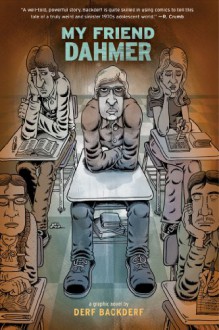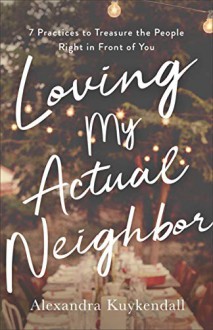

Stockholm syndrome: noun
'feelings of trust or affection felt in many cases of kidnapping or hostage-taking by a victim towards a captor.'
I will present you all with a few quotes from the book and then I will try to give my hopefully short opinion because my brain is already bleeding enough.
"He'd opened his mouth before acknowledging that he didn't want to talk to her. She was female and he male. Nothing else mattered."
"He'd force her down, envelope her, show her who her master was."
"She was his to punish or not, depending on his mood, and at this moment the only thing he wanted was for her to understand he was in charge."
""You will do what I command," he said. "What happens between us is for my pleasure, not yours. And if you can’t comprehend that—" He crouched so he could more easily strike her defenseless buttocks. "I’ll punish you until you do.""
"Besides, she was a piece of merchandise, gift wrapped for him."
"He only wanted a resting place for his cock. A willing one, his human half insisted. It doesn't matter, Puma returned."
"He’d take advantage of that, bring her down to his level. Going by instinct, he struck her ass as hard as he could do given the awkward angle. She shuddered and struggled to get free."
"The possibility stopped him from massaging her surely sore ass. No way would he allow her to think she was in control. He was! Even though he wasn’t sure what had prompted his anger, he started punishing her again and again. His breathing quickened and deepened with the renewed blows. This was good, perfect, a helpless creature delivered to him."
""You brought this on yourself," he said. "Maybe it’s what you want." The first blow to her too-accessible ass forced a curse from her lips. One thing she’d learned from previous spankings—the more she resisted, the longer the punishment lasted. Teeth clenched and eyes tightly closes, she silently counted as he struck her. Five swats were manageable, but ten had her wincing with every blow. By the time he reached fifteen, her head roared and her ass was on fire. This was their relationship, not all of it and thankfully not all the time, but at the core he disciplined and she endured."
My opinion:
Characters.
There is not much to say about them really. They are one sided as it gets.
Female lead Kai is a psychic that can talk to animals and that is why she is at some archeological find (there is a very loose connection there, just go with it) and there she wanders around and happens to encounter a puma that is half man half puma, imagine the coincidence. She gets subdued, forced, tied up, kidnapped and sexually molested but it's fine because after the Stockholm Syndrome kicks in she retroactively decides she actually wanted it all along (forget the crying, kicking, screaming, fearing, trying to run away etc).
Puma is well, half human half beast. Male lead - Hok'ee is his human side and Puma is his, you get it, puma side. Apparently he got turned into one of these because he did not accept his Native American heritage, that is so vaguely explained that I just cannot be bothered with it. Something about him being a man and young and able to reproduce a lot or something and that is why he is punished along with other 4 or 5 and the rest are not. Just go with it, it doesn't matter anyway.
Story.
Hahahaha, what story damn... woman gets into the area where pumas live, one puma stalks this woman then violently ties her with big thick rope first putting in her mouth then behind her to tie her hands behind her back and in the end her legs and kidnaps her tied like that and sexually molests her while she is scared crying fearing him. Then she realises she cannot escape him so she doesn't resist as much and he forces himself on her and then after some time of abusing this woman and punishing her she suddenly has an epiphany! Hallelujah! She actually does want this savage chauvinist rapist after all. She didn't immediately realise but after being hit enough times it got beaten into her. She is mad about this monster now. Everyone rejoice.
In the very last chapter of this overly long book the author is trying to fix all of this crap happening throughout the book by having the monster be gentle to her for the first time ever. It doesn't work because she is already brainwashed, how he now behaves is a moot point because he knows she will never leave. Give me a break.
Unintentionally funny part.
At some point in the story this main male character is talking to another puma and that other one says how he came (ejaculated) by listening to Hok'ee raping the woman and he is currently stroking his co&k when this happens:
"Nodding, Anaba released his co&k and patted Hok'ee's knee. Occasionally, when solitude and the need for sex became too much for them, they pleasured each other. They just didn't talk about this aspect of their relationship."
Because why not. Imagine now those five pumas turning into men and all just having an all male orgy. But let's not talk about it too much.
Also, just to point out, saying when solitude becomes too much and he hasn't been a puma that long, it's somewhere between a couple of months and a year you really start to understand the author's thinking. Yes, men just cannot help it. They cannot service themselves occasionally, no no, a couple of months is too long for just your hand or nothing, when push comes to shove and there are no women to kidnap and rape, just call your best mate and let him handle it. Cause that is what your best friend is for.
All in all.
I have zero respect towards this book. Since this is the only book I have read from this author I won't say the same about the author but I also certainly won't read any of the other works. I am not into self-torture up to that degree.
If you want to read about how NOT to get a woman, how NOT to respond to your kidnapping and rape, how NOT to have a toxic and abusive relationship, this book will provide you with perfect guidelines and examples about it.

 Log in with Facebook
Log in with Facebook 









